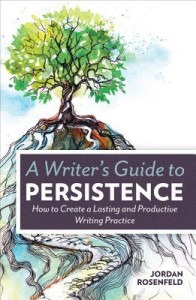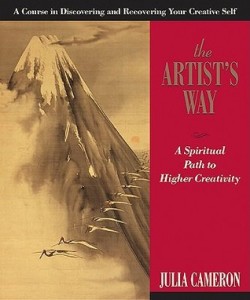Non-fiction can be both fun and profitable and November 2015’s posts showed us that and more.
Writing non-fiction, as Brent Nichols noted, can reunite us with our passion to write fiction. Brent also said other cool things like “And how would I communicate that thrill to my readers? By being specific.” For all his pearls of enthusiasm, check out Writing about Writing.
Others also revealed that non-fiction can teach us to be better fiction story tellers. But more about that later…
First, you need to know that yes, you can earn a living writing non-fiction.
Non-fiction to supplement fiction? It does happen and Colette Black shared her experience with finding a subject (which she was most enthusiastic about) and selling it. Collette sums it up best in her article, My Best Sale, when she says “… the numbers add up just fine.”
In Writing How-To’s for Fun and Profit, Guy Anthony de Marco showed us the fun in choosing non-fiction topics. As he said, everyone has something they like to do, and we all have some special knowledge to capitalize on. Guy has masterfully taken his hobbies and interests, even his grandmother’s old recipes, and has produced non-fiction books. Besides giving him a break from writing fiction, it has helped his bank account!
While Guy gave us great ideas on what kind of non-fiction books we could write, I provided some pointers on how to make sure you’ve got the perfect idea, about checking the market for what’s selling, and how to give the idea form. (See How to Write Non-Fiction Books for Profit) But the thing that Guy and I both stress, is that you’ve got to enjoy what you’re writing about. Again, that’s key in both fiction and non-fiction.
Ghost writing can be challenging, fun or frustrating. The challenge is that sometimes you’re dealing with sensitive subject matter, you need to portray the story to both the author’s and publisher’s satisfaction, and the deadlines may be tight. Yet, the results can be tremendous both for you and the person whose story is finally on the page. Evan Braun shared his ghost writing experiences with us in My Brief Career as a Ghost Writer.
In Writing for Magazines and Newspapers, Jace Killan shared a secret niche for non-fiction writing, and that’s newspapers, magazines and online articles. Oftentimes, these articles are used to supplement or give credibility to advertisements. Check it out.
Are you a mercenary or a freelance non-fiction writer? There is a difference. A mercenary writer is not a freelance writer. It involves writing for pay, no matter the subject. Do you want to be a mercenary writer or a freelancer? Check out Tereasa’s article, The Mercenary Writer, before you decide.
Get rid of fiction’s money woes! Apply for a grant.
Grants can be lucrative sources of funding and you’ll increase your chances of success if you apply the advice I provided in Grants – Money to Write. Grants are to be found on the local, regional, state/provincial and federal levels from governments, businesses or organizations. And, they can be used for research, for writing, for living, for retreats – the options are as varied as the sources. So, don’t be shy, seek them out because they’re there for both emerging and professional writers.
Of course you can write both fiction and non-fiction! You have the talent!
In Learning from Non-Fiction, Billie Milholland provided a valuable perspective on how fiction and non-fiction intermingle in her writing life and how they feed off each other. Writing non-fiction can be stimulating and rewarding and enhance a fiction career.
Still not convinced that you can write non-fiction?
Then reread Adria Laycraft’s article Fictional and Technical Writing – What’s the Difference? While fiction and non-fiction may seem to have very different goals, voice, and content, when it comes time to the actual writing, they’re really not that different. In either case, the writer must elicit the desired emotion from the reader, create a good structure of all the necessary key elements, research subjects thoroughly, and ensure proper word selection all to create the best possible content.
Rather than hiring a ghost writer to tell the family stories or to write the memoir, sometimes you just have to write the non-fiction stories. Follow Frank Morin’s advice – interview the grandparents, write their stories and you’ll give them the best Christmas present ever! Remember also that those personal stories, or some element of them, can inspire a new fiction. Check out How to Distract Grandma from Pestering you for More Grandkids.
Non-fiction is a necessary tool to further your fiction writing career.
Those conniving cover letters! You’ve spent months, even years perfecting that novel and your success in the market place hinges on how you introduce your book and yourself in a cover letter! Fear not! In The Art of the Cover Letter, Kristin Luna demystifies the cover letter by giving us a simple yet effective way to write one.
Oh dear blurb, how shall I blurt thee out? Mary Pletsch knows how! In Blurbs: Baiting Your Hook, Mary explains that a blurb is not a summary. It’s role is to make you read more and Mary’s points make it easy. That’s it for this blurb, go check out the blog if you want to know more!
Whether we write fiction or non-fiction, there is a certain syntax, a voice, we all have that makes our writing genuine. Kim May’s blog Finding Your Voice Through Blogging, reveals her path to finding her voice. Her observation that we write a million words to find our voice makes a lot of sense. As I heard it said, if we try to emulate someone else, then we’ll only ever be second best. Be yourself and you’ll always be number one!
As writers we live and die by the book review. How to tell a good review from a bad one? How to give a good one? A reader and receiver of book reviews, author Jeff Campbell shared what works and doesn’t when it comes to writing book reviews. Sometimes we have to give it and sometimes we have to take it – Batman style. For more on Batman read Batman, Boldness and Book Reviews.
Then, there’s the dreaded interview.
You’ll be interviewed, either in person or by phone or by email. You may even have to conduct one. Understanding the craft of the interview is an important but often over looked form of non-fiction so read An Interview on Interviewing where I interviewed Celeste A. Peters.
Interviewing someone who has conducted countless interviews was daunting but fun! Celeste’s and my greatest challenge was making sure we were on the same page. I had a goal and Celeste had a goal along with a wealth of information to share. That meant I had to do what all interviewers must: understand the subject matter to some degree: know something about Celeste’s work and trust that she’d do a smash up job (and she did); and ask questions that would be fun for her and interesting to readers.
And finally, we had a great example of using non-fiction to promote our fiction when Gregory D. Little, rocket scientist by day and author by night, launched his book Unwilling Souls. This book sounds good – I’ll have to check it out.
I hope you enjoyed non-fiction month and found our posts not only interesting but useful. Happy writing!



